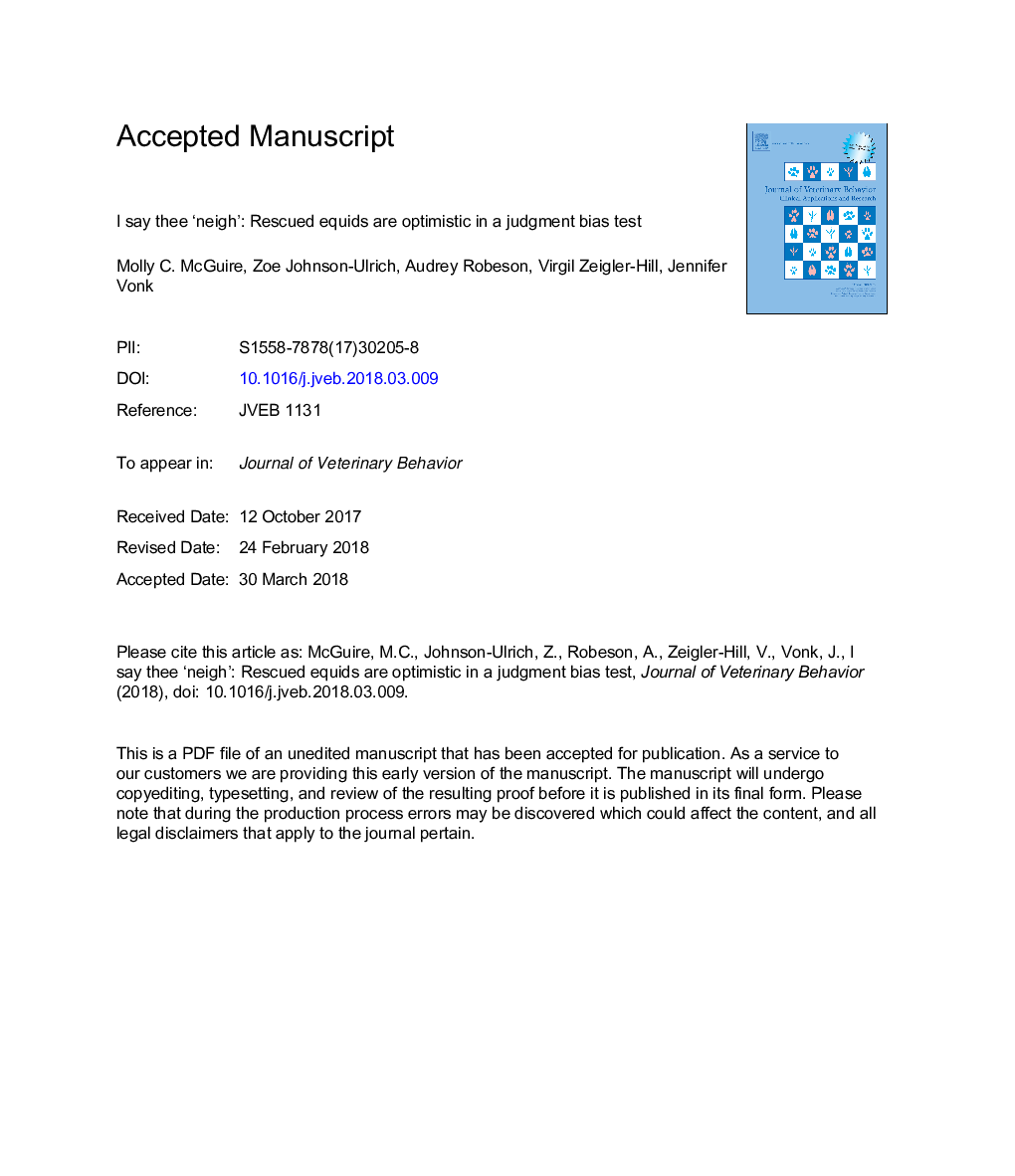| Article ID | Journal | Published Year | Pages | File Type |
|---|---|---|---|---|
| 8484121 | Journal of Veterinary Behavior: Clinical Applications and Research | 2018 | 32 Pages |
Abstract
Changes in the affective state of neglected or abused animals can be difficult to quantify relative to physical improvements following rescue. Judgment bias as a measure of affective state was assessed in 8 horses and 2 donkeys that differed in their care history (abused/neglected or nonabused/non-neglected, hereafter described as rescued/nonrescued). On each training trial, a single bucket was presented at 1 of 2 locations; one that always contained food (reward) and another that never contained food (nonreward), and the latency to approach within 1 m of the bucket was recorded. Once differential responding to the 2 locations was established, buckets were presented at ambiguous locations (spatially intermediate between the reward and nonreward locations). Both groups approached the middle location with intermediate latencies. However, care history moderated the difference in latencies to respond to the reward versus the ambiguous locations. In fact, rescued equids approached the ambiguous locations more quickly than the nonrescued equids did, although there was no difference in approach to the reward stimulus. These results suggest that prior poor treatment at the hands of humans does not induce lasting pessimistic judgment biases, but further work is needed to examine changes in judgment bias following neglect or abuse.
Related Topics
Life Sciences
Agricultural and Biological Sciences
Animal Science and Zoology
Authors
Molly C. McGuire, Zoe Johnson-Ulrich, Audrey Robeson, Virgil Zeigler-Hill, Jennifer Vonk,
